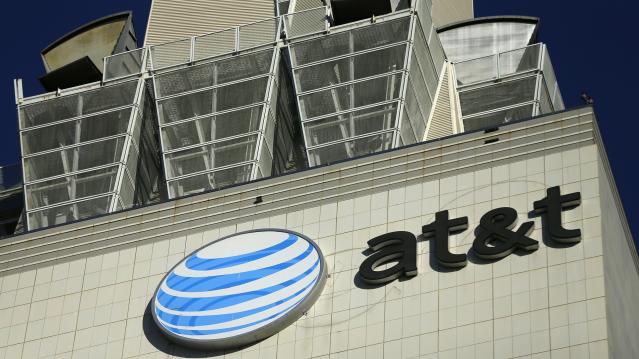FCC Slaps AT&T with $100 Million Fine for Throttling Internet Users

The FCC on Wednesday slapped AT&T hard, proposing a $100 million fine — the largest the agency has ever handed down — for what it described as the phone and broadband giant’s misleading customers about its “unlimited” data plans.
At issue is the practice of “throttling,” or limiting download and upload speeds for some users on those data plans.
Related: John Oliver Just Won the Net Neutrality Battle
AT&T’s throttling policy had been in place since 2011, according to an FCC statement, and it led to a barrage of complaints to the agency. AT&T targeted users who surpassed a certain data threshold over the course of a month, and consumer complaints argued that AT&T’s limiting of download speeds was directly at odds with the nature of the marketed “unlimited” plans.
AT&T, which is also pursuing government approval of its pending acquisition of DirecTV, says it will “vigorously dispute” the decision. In a statement, the company said that its practice is well documented and shared by many — if not all — service providers, and a legitimate method of managing their network’s resources. The FCC disagrees, claiming that AT&T violated transparency rules by falsely calling these plans unlimited.
"Broadband providers must be upfront and transparent about the services they provide,” said FCC Chair Tom Wheeler in a statement. “The FCC will not stand idly by while consumers are deceived by misleading marketing materials and insufficient disclosure."
Related: The Net Neutrality Debate Explained
AT&T has 30 days to respond before the FCC issues its final decision.
The Federal Trade Commission sued AT&T for $3.5 million in October last year, for the same alleged violation. That case is still ongoing.
Map of the Day: Navigating the IRS

The Taxpayer Advocate Service – an independent organization within the IRS whose roughly 1,800 employees both assist taxpayers in resolving problems with the tax collection agency and recommend changes aimed at improving the system – released a “subway map” that shows the “the stages of a taxpayer’s journey.” The colorful diagram includes the steps a typical taxpayer takes to prepare and file their tax forms, as well as the many “stations” a tax return can pass through, including processing, audits, appeals and litigation. Not surprisingly, the map is quite complicated. Click here to review a larger version on the taxpayer advocate’s site.
A Surprise Government Spending Slowdown

Economists expected federal spending to boost growth in 2019, but some of the fiscal stimulus provided by the 2018 budget deal has failed to show up this year, according to Kate Davidson of The Wall Street Journal.
Defense spending has come in as expected, but nondefense spending has lagged, and it’s unlikely to catch up to projections even if it accelerates in the coming months. Lower spending on disaster relief, the government shutdown earlier this year, and federal agencies spending less than they have been given by Congress all appear to be playing a role in the spending slowdown, Davidson said.
Number of the Day: $203,500

The Wall Street Journal’s Catherine Lucey reports that acting White House Chief of Staff Mick Mulvaney is making a bit more than his predecessors: “The latest annual report to Congress on White House personnel shows that President Trump’s third chief of staff is getting an annual salary of $203,500, compared with Reince Priebus and John Kelly, each of whom earned $179,700.” The difference is the result of Mulvaney still technically occupying the role of director of the White House Office of Management and Budget, where his salary level is set by law.
The White House told the Journal that if Mulvaney is made permanent chief of staff his salary would be adjusted to the current salary for an assistant to the president, $183,000.
The Census Affects Nearly $1 Trillion in Spending

The 2020 census faces possible delay as the Supreme Court sorts out the legality of a controversial citizenship question added by the Trump administration. Tracy Gordon of the Tax Policy Center notes that in addition to the basic issue of political representation, the decennial population count affects roughly $900 billion in federal spending, ranging from Medicaid assistance funds to Section 8 housing vouchers. Here’s a look at the top 10 programs affected by the census:
Chart of the Day: Offshore Profits Continue to Rise

Brad Setser, a former U.S. Treasury economist now with the Council on Foreign Relations, added another detail to his assessment of the foreign provisions of the Tax Cuts and Jobs Act: “A bit more evidence that Trump's tax reform didn't change incentives to offshore profits: the enormous profits that U.S. firms report in low tax jurisdictions continues to rise,” Setser wrote. “In fact, there was a bit of a jump up over the course of 2018.”




